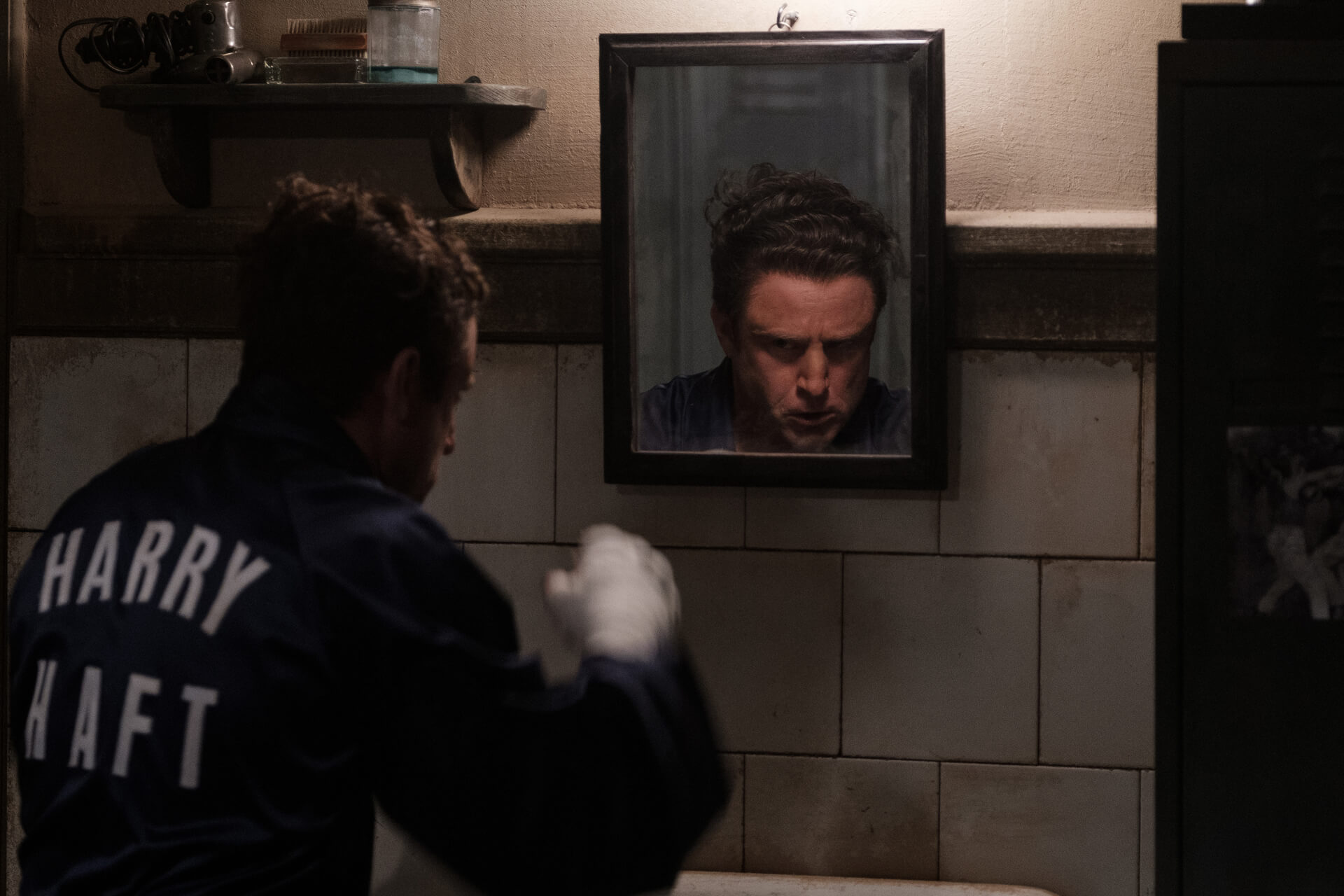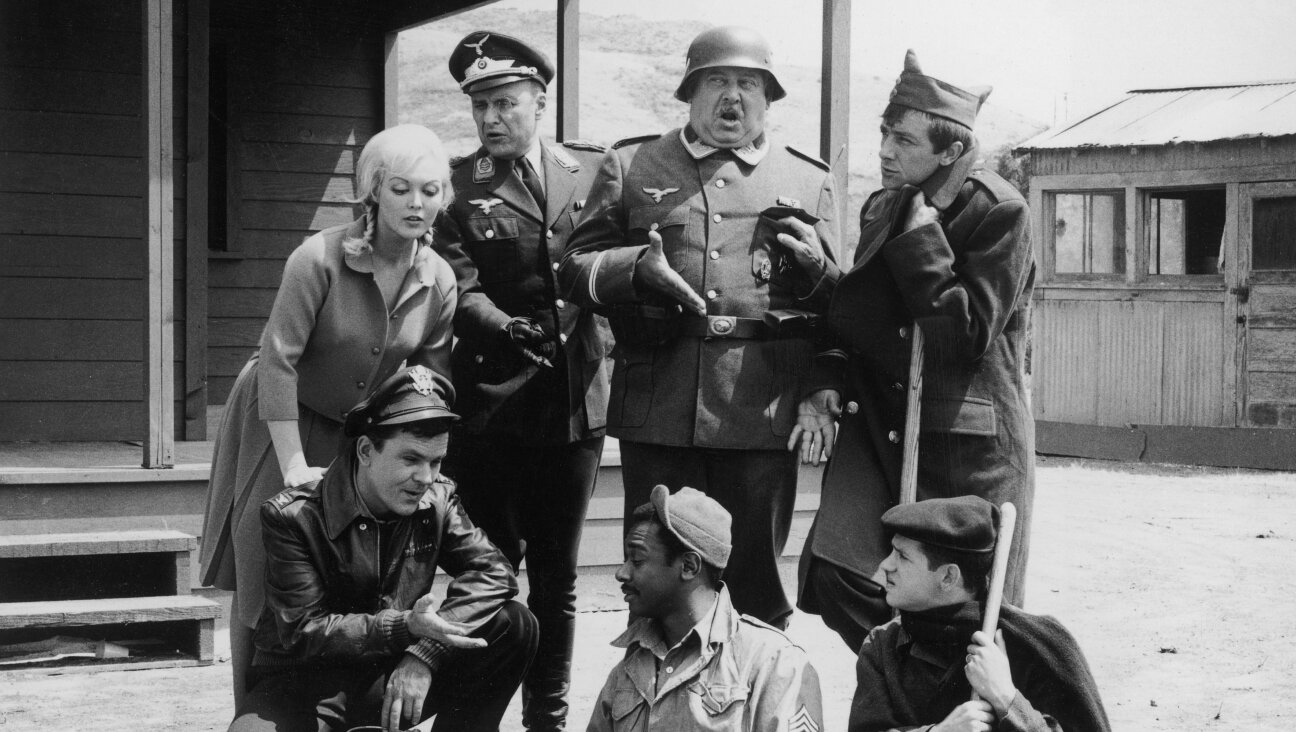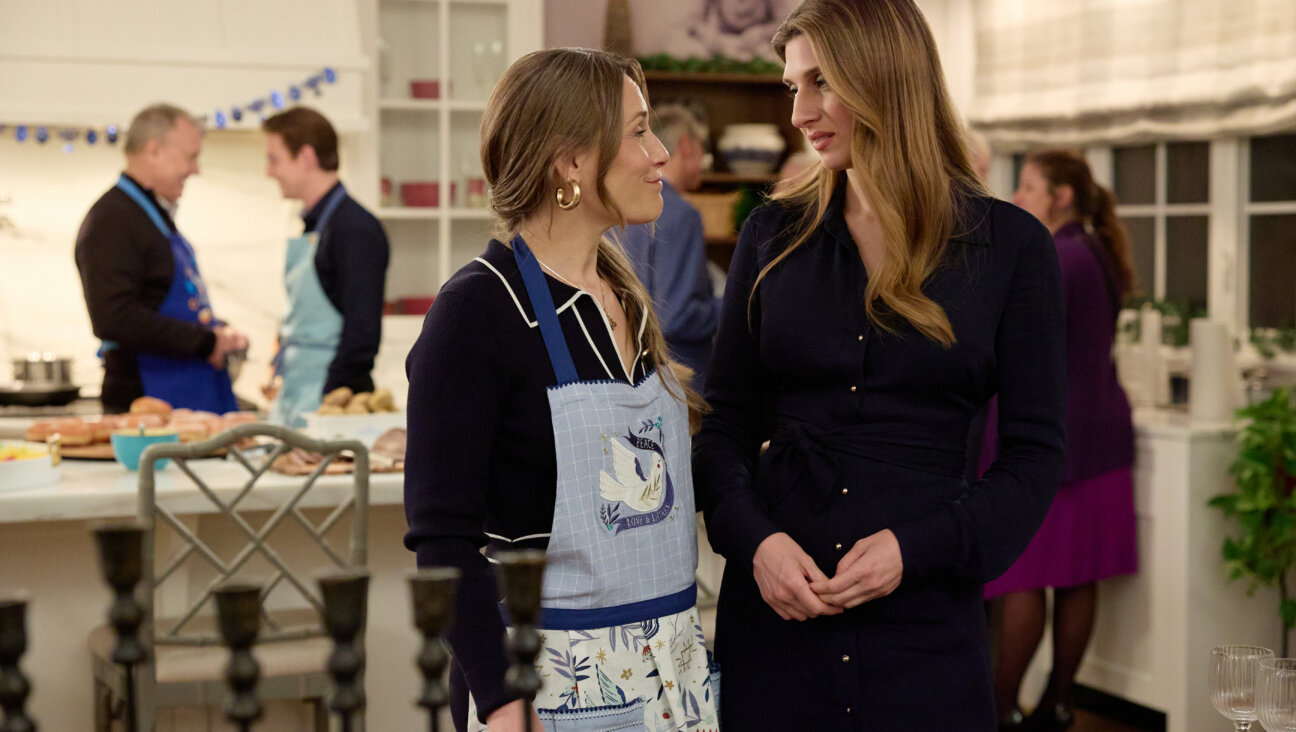
Ben Foster as Harry Haft in Barry Levinson’s “The Survivor.” Photo by Jessica Kourkounis/HBO
In ‘The Survivor,’ Ben Foster enters the Gray Zone – but doesn’t land a knockout blow
The HBO film tells the true story of boxer Harry Haft
Hertzko “Harry” Haft had one of the most memorable introductions in boxing: “The Pride of Poland and the survivor of Auschwitz.” It’s a shame that the film about Haft’s life, which grapples with the immense complexity of his circumstances, is largely forgettable.
Barry Levinson’s “The Survivor,” which premieres on HBO April 27, follows Haft, a light heavyweight boxer, who survived the camps by fighting other prisoners for the entertainment of Nazi officers. The Nazis killed the losers, making winning a bitter prospect.
It’s a remarkable true story, all the more so because – unlike actor Ben Foster, who both shed weight and gained bulk to play the role in three different decades – Haft was still a teenager at the time. His exact age and origins are left by the wayside, sacrificed for a still crowded plot in which Haft, relocated to Brooklyn in the 1950s, fights champions and speaks to a journalist in the hopes of reuniting with his lost lover, Leah, who he is certain survived the war.
Leah is a too direct symbol of Life Before, but the search for her offers a look at the crowded offices where survivors waited for news of relatives after the Shoah. And while the device of a fictional journalist named Emory Anderson (Peter Sarsgaard) feels phony, his presence helps to spell out the complicated dynamics.
Emory is drawn to Haft’s story of being trained by an SS officer precisely because “nothing is black and white” in it. He wants to report on the “cracks and the common ground” between Nazis and Jews. So Haft tells him a story about a prisoner with a missing cap and his decision to steal one that wasn’t his, knowing full well it would cause the guards to kill the other man at an inspection.
“Was he wrong to take the cap?” Foster, as Haft, asks in a quite good Yiddish accent. “These are the choices we made everyday. Choices you made when you were starving, choices made when your gums bleed and you’re sick to your stomach and you shit your pants. Choices made when you remember that you once had a family.”
It’s to Foster’s credit that this rather didactic monologue, smothered with plaintive string music, actually lands. It will take until the end, where the cap story is echoed in a familiar Jewish joke, for the execution to fully stumble.
The film bobs and weaves between black-and-white remembrance and the washed-out colors of the post-war period. At its most ambitious, Haft’s experience works as a case study in what Primo Levi termed “The Gray Zone,” a morally ambiguous area where victims of the camps compromised or collaborated to live another day. The glimpses we get of Haft and his Nazi trainer Dietrich Schneider (Billy Magnusson) sometimes do justice to this ambiguity, but they are competing with the adult Haft’s bouts with God and courtship and family life with a woman named Miriam (Vicky Krieps), who he meets trying to find Leah.
Directing Justine Juell Gillmer’s script, Levinson, known of late for a string of HBO projects wherein Al Pacino or Robert DeNiro play various monsters of recent decades, feels most at ease away from the weightier arenas of the camp and canvas. When Haft is allowed to kibitz with his brother Peretz (Saro Emirze) with coaches played by John Leguizamo, Paul Bates and Danny DeVito, Levinson gives us the best of “Bugsy” and “Avalon” – a kind of period hangout that plays to his strengths and to a subtler reality.
After being told he ate pork during a training getaway, Haft takes just a small beat before responding, “That’s OK, God doesn’t pay too much attention to me anyway.” The line does more work in less time than a later scene at a synagogue, where flanked by Stars of David, he asks where God was when Nazis killed an infant.
Crammed into two hours and bouncing back and forth across time and space – one scene introduces a new location via onscreen text, seconds before cutting to another place with text indicating a mini time jump – Levinson’s film employs familiar tropes while telling a story we haven’t seen before. In his leading man, he has found a tour de force performance wasted on a straight-to-cable film. Yet it’s tempting to consider how the film’s problems could be remedied by a tighter focus or by the extra space of miniseries length.
Harry Haft’s life was extraordinary for being singular and just one variation of the moral murk Levi observed at Auschwitz. Aiming to be both a character study, and a broader meditation about the survivors’ experience, it can’t overcome the uniquely forceful metaphor of Haft’s dilemma. Others who were in the camps spit in his beer when they hear how he beat up other Jews, even as we’re meant to understand it’s not so different from stealing a man’s hat to save yourself. We’re given the dots to connect these two scenarios, but the finished picture looks too tidy, the instructions too easy to parse.
The film’s title, like that of a similar and worse film “Triumph of the Spirit,” about a different boxer at the camp, holds its major question: How did Haft survive, not only physically, but in spirit? It’s the right question, but like a good punch, it has its strongest impact when it isn’t telegraphed.
A message from our Publisher & CEO Rachel Fishman Feddersen

I hope you appreciated this article. Before you go, I’d like to ask you to please support the Forward’s award-winning, nonprofit journalism during this critical time.
We’ve set a goal to raise $260,000 by December 31. That’s an ambitious goal, but one that will give us the resources we need to invest in the high quality news, opinion, analysis and cultural coverage that isn’t available anywhere else.
If you feel inspired to make an impact, now is the time to give something back. Join us as a member at your most generous level.
— Rachel Fishman Feddersen, Publisher and CEO
























